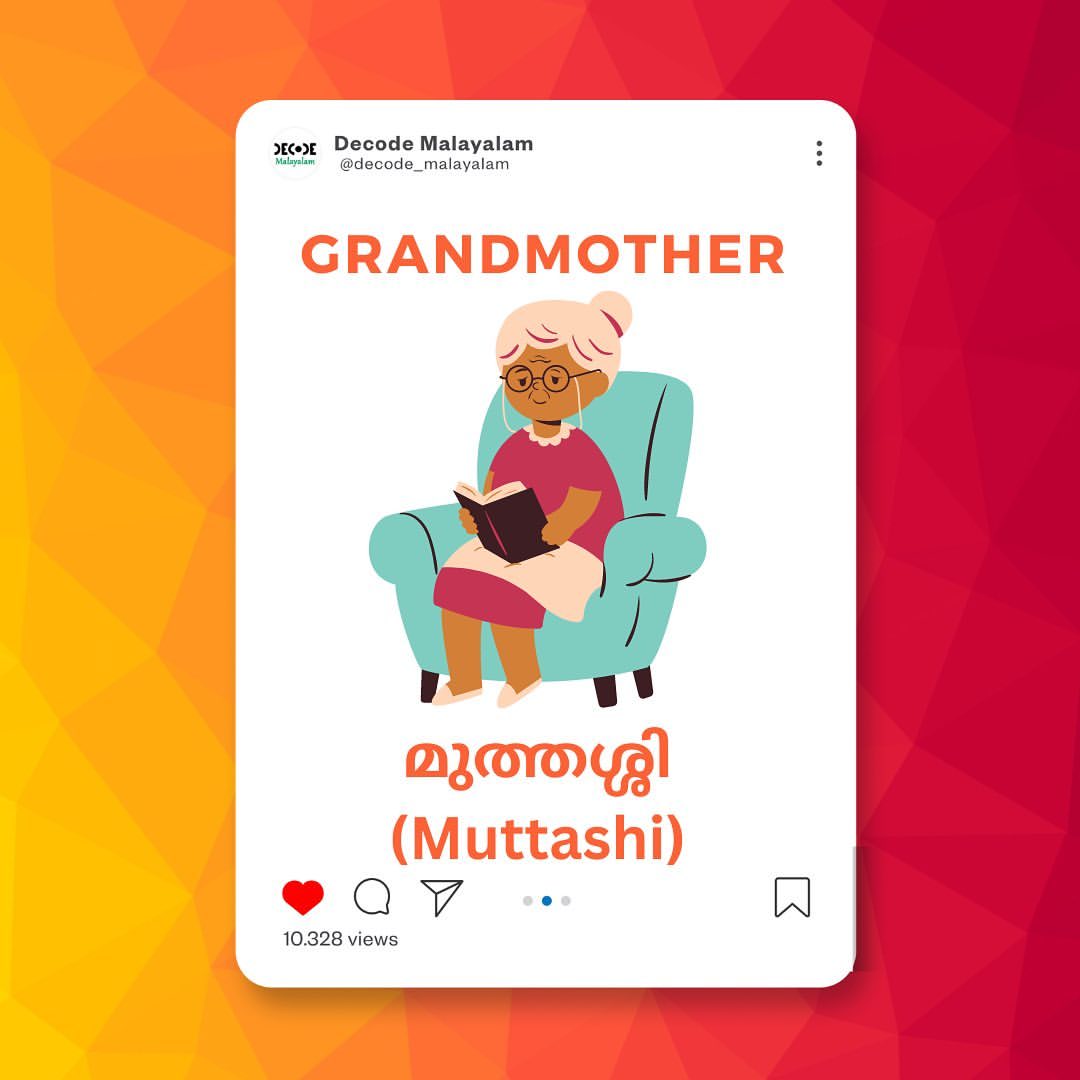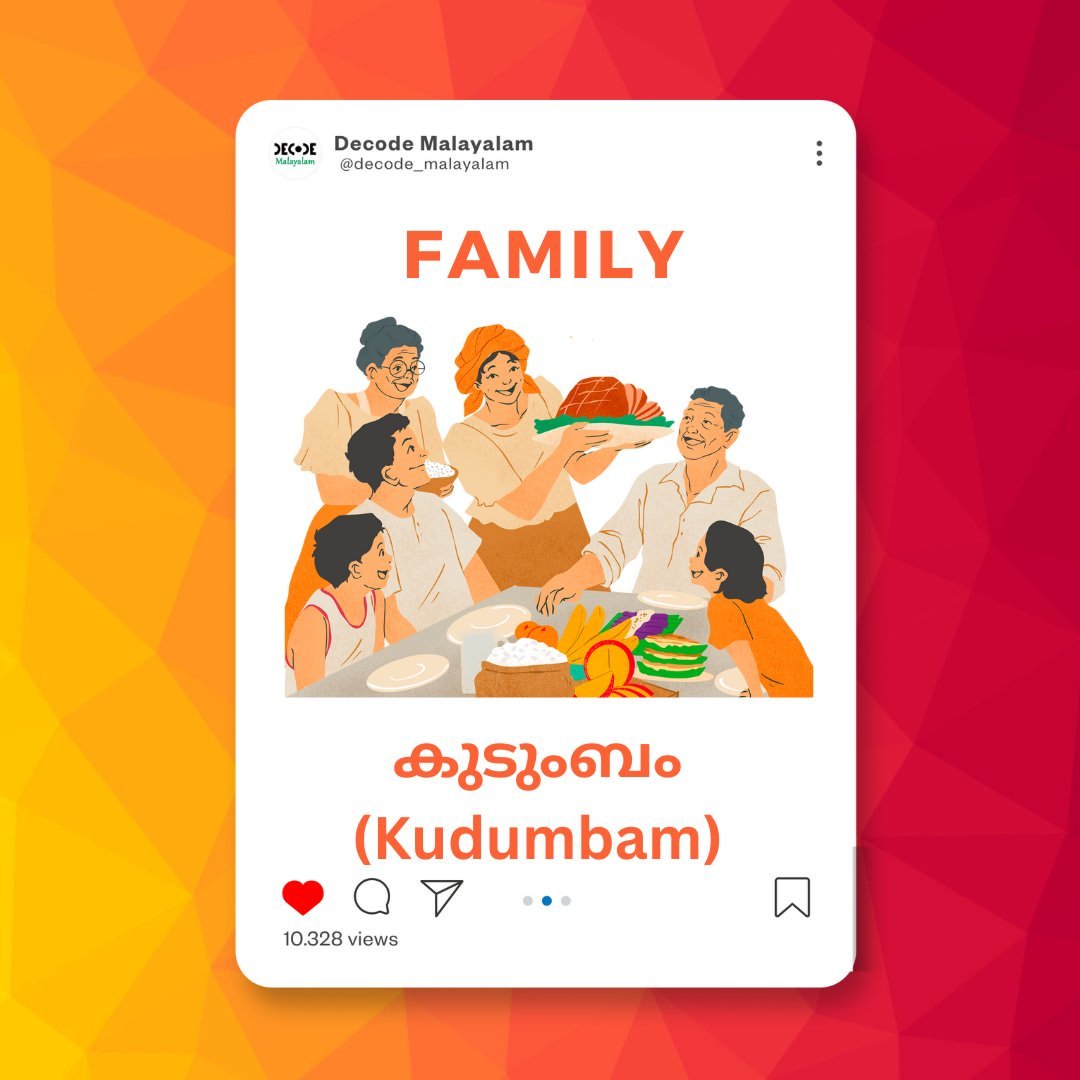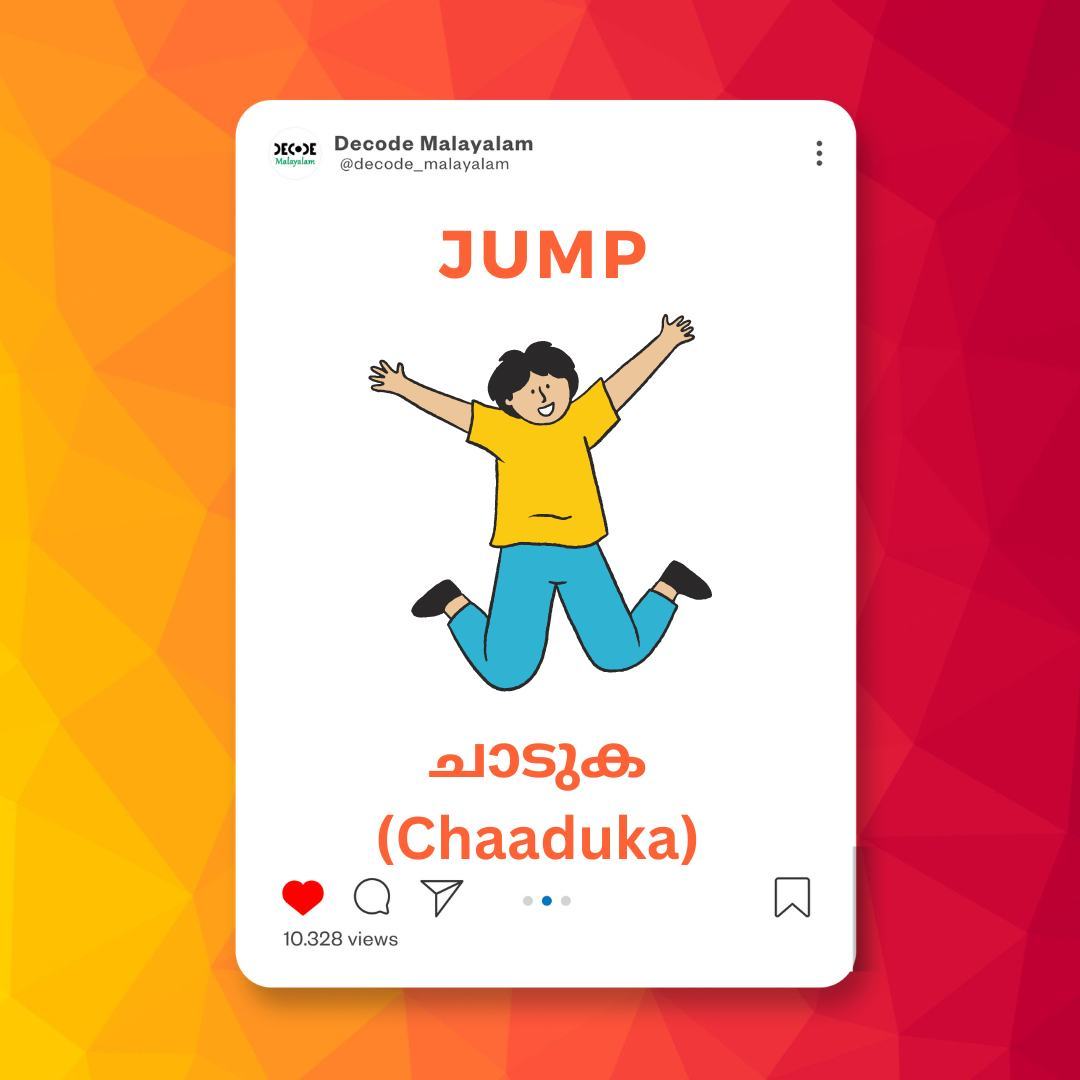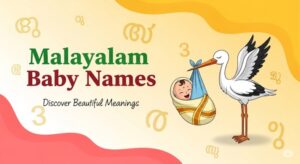Learning a new language can be an exciting and rewarding experience. If you are a Tamil speaker interested in learning Malayalam, you are in the right place. This article will provide you with a basic introduction to learning Malayalam through Tamil, helping you grasp the fundamental words and meanings to kickstart your language journey effectively. We cover most of the basic Malayalam words and its meaning in Tamil and English. Let us learn Malayalam through Tamil with Decode Malayalam.
Why Learn Malayalam Through Tamil?
- Similar Scripts: One advantage Tamil speakers have is that both Tamil and Malayalam scripts have some similarities, making it a bit easier to grasp the written aspect of the language.
- Cultural Connection: Tamil and Malayalam share historical and cultural connections, which can make understanding certain aspects of Malayalam more familiar to Tamil speakers.
- Regional Understanding: Learning Malayalam can enable Tamil speakers to better communicate and understand individuals from the Kerala region.
50 Basic Malayalam Words and its meaning in Tamil & English
In this section, you will be introduced to some basic Malayalam words and their meanings. By familiarizing yourself with these words, you will have a foundation for further language learning. Some essential words you will encounter include greetings, numbers, common phrases, and everyday vocabulary.
| S.No | English | Meaning in Malayalam | Manglish | Meaning in Tamil | Meaning in Tamil (Tamil Script) |
|---|---|---|---|---|---|
| 1 | Yes | അതെ | Athe | ஆமாம் | Aamām |
| 2 | No | ഇല്ല | Illa | இல்லை | Illai |
| 3 | Hello | ഹലോ | Halo | வணக்கம் | Vanakkam |
| 4 | Goodbye | വിട | Vida | போய்விடு / குட்பை | Pōyvidu / குட்பை |
| 5 | Please | ദയവായി | Dayavaayi | தயவு செய்து | Dayavu Seythu |
| 6 | Thank you | നന്ദി | Nandi | நன்றி | Nandri |
| 7 | Sorry | ക്ഷമിക്കുക | Kshamikuka | மன்னிக்கவும் | Mannikkavum |
| 8 | Excuse me | ക്ഷമിക്കണം | Kshamikkanam | மன்னிக்கவும் | Mannikkavum |
| 9 | What | എന്ത് | Enthu | என்ன | Enna |
| 10 | Where | എവിടെ | Evide | எங்கு | Engu |
| 11 | When | എപ്പോഴാണ് | Eppozhanu | எப்போது | Eppōthu |
| 12 | How | എങ്ങനെ | Engane | எப்படி | Eppadi |
| 13 | Why | എന്തുകൊണ്ട് | Enthukondu | ஏன் | Yen |
| 14 | Who | ആരാണ് | Aaranu | யார் | Yār |
| 15 | Water | വെള്ളം | Vellam | தண்ணீர் | Thanneer |
| 16 | Food | ഭക്ഷണം | Bhakshanam | உணவு | Unavu |
| 17 | Tea | ചായ | Chaaya | தேநீர் | Thenīr |
| 18 | Coffee | കാപ്പി | Kaappi | காப்பி | Kaapi |
| 19 | House | വീട് | Veedu | வீடு | Veedu |
| 20 | Friend | സുഹൃത്ത് | Suhruth | நண்பர் | Naṇbar |
| 21 | Family | കുടുംബം | Kudumbam | குடும்பம் | Kudumbam |
| 22 | Father | അച്ഛൻ | Achhan | அப்பா | Appā |
| 23 | Mother | അമ്മ | Amma | அம்மா | Ammā |
| 24 | Brother | സഹോദരൻ | Sahodaran | அண்ணன் / தம்பி | Aṇṇan / தம்பி |
| 25 | Sister | സഹോദരി | Sahodari | அக்கா / தங்கை | Akka / தங்கை |
| 26 | Child | കുഞ്ഞ് | Kunj | குழந்தை | Kuzhandhai |
| 27 | Man | പുരുഷൻ | Purushan | ஆண் | Āṇ |
| 28 | Woman | സ്ത്രീ | Sthri | பெண் | Peṇ |
| 29 | Morning | രാവിലെ | Raavile | காலை | Kālai |
| 30 | Night | രാത്രി | Raathri</ td> | இரவு | Iravu |
| 31 | Today | ഇന്ന് | Innu | இன்று | Indru |
| 32 | Tomorrow | നാളെ | Naale | நாளை | Nāḷai |
| 33 | Yesterday | ഇന്നലെ | Innale | நேற்று | Nētru |
| 34 | Here | ഇവിടെ | Ivide | இங்கே | Inge |
| 35 | There | അവിടെ | Avide | அங்கே | Ange |
| 36 | Left | ഇടത് | Idathu | இடது | Idathu |
| 37 | Right | വലം | Valam | வலம் | Valam |
| 38 | Up | മുകളിൽ | Mukalil | மேல் | Mēl |
| 39 | Down | താഴെ | Thaazhe | கீழ் | Kīzh |
| 40 | Big | വലുത് | Valuth | பெரிய | Periya |
| 41 | Small | ചെറിയ | Cheriya | சிறிய | Siriya |
| 42 | Hot | ചൂട് | Chood | சூடான | Sūdāna |
| 43 | Cold | തണുപ്പ് | Thanupp | குளிர்ந்த | Kuḷirnda |
| 44 | Happy | സന്തോഷം | Santhosham | சந்தோஷம் | Santhōsham |
| 45 | Sad | ദുഃഖം | Dukham | சோகம் | Sōgam |
| 46 | Beautiful | സുന്ദരം | Sundaram | அழகான | Azhagāna |
| 47 | Love | സ്നേഹം | Sneham | காதல் | Kādal |
| 48 | Money | പണം | Panam | பணம் | Panam |
| 49 | Work | ജോലി | Joli | வேலை | Vēlai |
| 50 | School | സ്കൂൾ | School | பள்ளி | Paḷḷi |
Practice, Practice, Practice
Remember, consistent practice is key to mastering a new language. Immerse yourself in Malayalam by watching movies, listening to music, or conversing with native speakers to enhance your language skills effectively.
Now, let’s dive into the basic words and meanings of Malayalam to lay a strong foundation for your language learning journey.
Similarities Between Malayalam and Tamil
- Dravidian Languages: Malayalam and Tamil are both Dravidian languages spoken in the southern part of India.
- Script: Both languages have their own unique scripts. Malayalam uses a script derived from the ancient Brahmi script, while Tamil has a script that is unique to the language.
- Vocabulary: There are similarities in vocabulary between Malayalam and Tamil due to historical and cultural interactions between the speakers of the two languages.
- Grammar: Malayalam and Tamil share similarities in their grammar structure, including the use of suffixes and prefixes to convey meaning.
- Loanwords: Both languages have borrowed words from Sanskrit, as well as from other languages like Arabic, Portuguese, and English.
- Literature: Both Malayalam and Tamil have rich literary traditions, with ancient texts and modern literature showcasing the cultural and linguistic similarities between the two languages.
- Pronunciation: Although there are distinct differences in pronunciation, there are also similarities in certain sounds and intonations in Malayalam and Tamil.
- Geographical Proximity: The geographical proximity of the regions where Malayalam and Tamil are spoken has also contributed to the linguistic similarities between the two languages.
- Cultural Influences: Historical and cultural exchanges between the Malayalam and Tamil-speaking communities have led to shared cultural influences, which are reflected in the languages as well.
Conclusion
Overall, learning Malayalam through Tamil can be an enriching experience. By grasping the basic words and meanings highlighted in this article, learners can start to build a foundation in the Malayalam language. It is essential to continue practicing and expanding vocabulary to enhance fluency and comprehension. We hope this blog helps you to learn Malayalam through Tamil, comment your feedback.
Read more :











